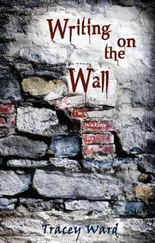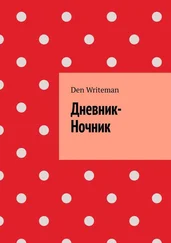1 ...8 9 10 12 13 14 ...31 Hair plastered to my head, I went as well, but not home. The nearest port of call was 8 Houghton Street. When I knocked on the front door it was opened by Auntie Edna, and straight away she turned to shout into the room, ‘Another survivor from the Titanic.’ I later discovered that I’d turned up at the wrong football match: I should have been enjoying a kickabout with other little boys half a mile away.
Standing on the bed one day, I found that I could just about reach the bulkhead, a small space beneath the rafters, and I was curious to know if anything was stored there. I wasn’t tall enough to see, but by swinging my arm about I came into contact with a leather suitcase. I swept it down on to the bed in a cloud of dust. It wasn’t heavy, and so at first I thought it must be empty, but when I opened it I found an old dog-eared hardback book, with a yellow cover, entitled Tudor Kings and Queens of England. I wasn’t too interested, because my attention was drawn to the lining of the suitcase, which was an old newspaper. I opened it out and my eye was taken by drawings of slim young women advertising dresses buttoned at the neck but with skirts down to the calves—very daring, as the paper must have been at least ten years old and the present year was barely into the 1930s. It had the latest styles, mind you, all priced under a pound, and the most modern handbags from Italy, less than ten bob. There were no photographs in the newspaper just drawings. How I wish now that I’d kept it to the present day, but then again how many things would I have kept had I ‘some power the giftie gie us’ (Robbie Burns). I was just about to close the case and chuck it back when a sudden thought swept through my mind. Tudor Kings and Queens of England? I’d never read a book in my life but there’s always a first time. Taking the book downstairs, I sat on a buffet and flipped through the pages. I realised that it was going to be a stiff test because it contained no pictures.
Chapter One and I embarked on my first literary expedition. Page two, page three—diligently I read every word, not understanding any of them. By dinnertime I was three parts through the turgid, boring kings and queens of England, but with a slice of bread buttered with condensed milk I pressed on. Dad, who was out of work in the depression of the thirties, came home after a fruitless job hunt, took off his cap, coat and scarf and, seeing that I was already eating my dinner, stuck a slice of bread on the end of the toasting fork and held it over the fire. I wished I’d thought of that, but then again condensed milk and toast was unthinkable. I went back to my book. I hadn’t far to go now, and I was devouring the book page by page, reading every word religiously. I even read what some unknown had written on the bottom of page 163: in a spidery hand he’d scrawled, ‘Remind Amy about Saturday.’ I remember turning the corner of the page down in case I might want to read it again. It was intriguing…Perhaps Amy was his intended, or maybe they were already married and what was happening on Saturday? A dance, a football match…Ah, but could the writer be a girl and Amy her best friend? I stared unseeing at the page before me, and then I pulled myself together and concentrated—only a few more pages to go now.
Eventually near teatime I came to the most wonderful part of the book: just two words, ‘The End’. Snapping the book shut I stood up and stretched. I’d been hunched for hours but it had been worth it.
I casually edged towards my father and said, ‘Dad, I’ve just read a book,’ as if I’d been awarded the Nobel Peace Prize.
He said, ‘What’s it about?’
I stared at him blankly. I was flummoxed. Wasn’t it enough that I’d read it? After all, that was the achievement—surely I didn’t have to understand it as well. On second thoughts it might have been better to have counted the words instead of reading them. Then I could have said, ‘Dad, there are twenty-five thousand, four hundred and twenty-six words in this book, not counting the title.’ I just looked at him. He was staring at me pitifully, as if I was slightly backward, and on reflection I think he had a point.
I can’t ever recollect my father having a serious talk with me or anyone else for that matter. He was a quiet, gentle person and never, ever, did I hear Dad swear, to the day he died in 1972, but if provoked beyond all endurance he always used the same innocent alternative. It was ‘broad lastic’, uttered through gritted teeth. It scared the daylights out of us. I know it sounds innocuous, but throughout my life I probably heard as many expletives as any other veteran, and none as dangerous as ‘broad lastic’ when growled by my father.
He was a man of principles and on election day he would vote Conservative, the only one in a community of staunch, long-live, die-hard Labourites. Dad even put a photo of our local Tory candidate in the front window. This was unfortunate for John and me when on the day before the votes were counted the young sons of Labour supporters came out with rolled-up yellow paper bound by string, which they whirled about their heads, and lambasted us for betraying the working class. However, on the following day all was forgotten and we carried on playing together as if nothing had happened, which was true as the Liberals usually got in.
Every Sunday, while other tired, weary fathers lay a-bed till dinnertime, our dad was preparing himself for his morning’s hobby: he was a campanologist or, in common parlance, a bell-ringer.
Whatever the weather, he would stride across the Mucky Broos to St Mary’s Parish Church, not in his drab, worn, workaday clobber, but completely transformed in black bowler hat, overcoat—always unbuttoned—flapping behind him like an opera cloak, stiff white collar, black tie and highly polished shoes protected by pearl-grey spats, which intrigued me. I can remember watching him fastening them over his shoes, dexterously making them secure with a buttonhook, which he always replaced on the mantelpiece, out of my reach. Every time I watched him going to church my heart swelled with pride, even though I knew that in the lining of his bowler was rolled-up newspaper to prevent it from falling over his eyes, that his overcoat had only one button left and that his shoes once belonged to his father and had more balled-up newspaper in the toes to prevent him from walking out of them in the damp Broos. From a distance he was a real bobby-dazzler, but close up the rag-and-bone man wouldn’t have given him fifteen bob for the lot. Anyway, what do fancy clothes matter? It’s the man inside that drives the engine. Dad looked forward with excited anticipation to his stint in the belfry, just as a keen football supporter will push his way through the turnstiles at Boundary Park to stand for almost two hours on a cold, windy terrace to watch Oldham Athletic.
Arriving at the church opposite the war memorial, he strode over the gravestones, one of which was for a whole family: husband, wife and six children, who all died within a week in the year 1734. What a tragic story behind that! If this was the graveyard, how old was St Mary’s Parish Church? I can imagine my father opening the great front door which led to the stone steps winding their way up to the belfry, ‘Good mornings’ to the seven other ringers, overcoats and jackets on hooks in the corner, sleeves rolled up as they approached their allocated places, a nod from the conductor, and then with a creak and a rattle of the bell ropes the Sunday morning silence shattered by the clamouring of the bells. The opening round was usually reasonable, but then the rot set in and the bells seemed to compete, jostling with each other for a piece of the action. It was as if a mighty hand from above had scooped up all the bells to fling them down to earth, clanging and banging as they bounced down Barker Street.
Читать дальше












